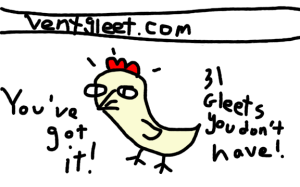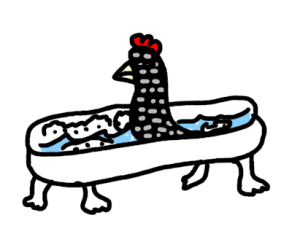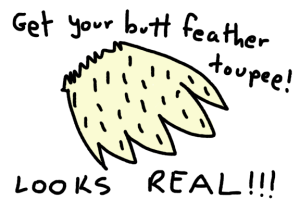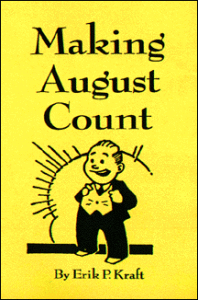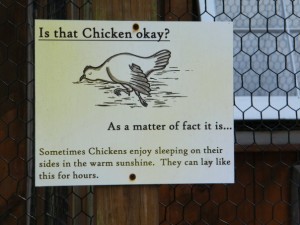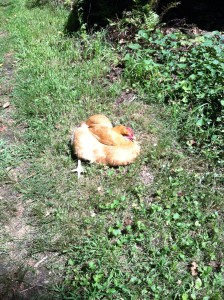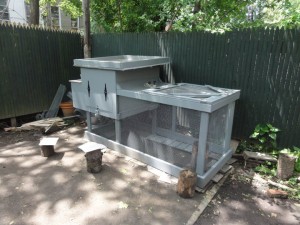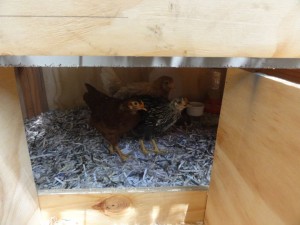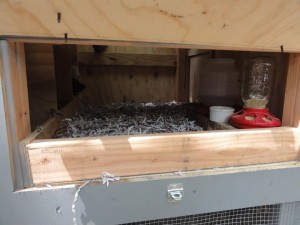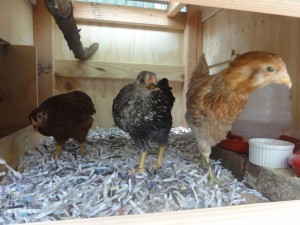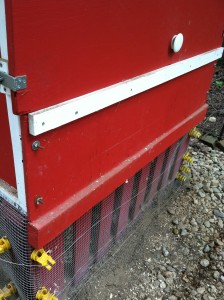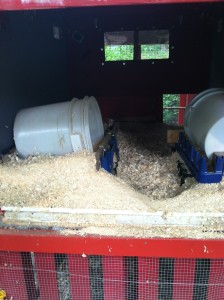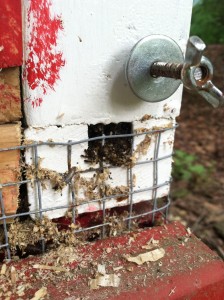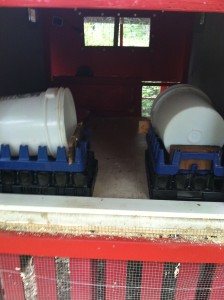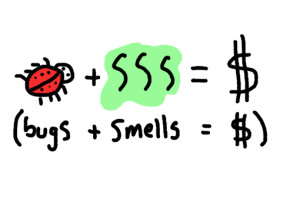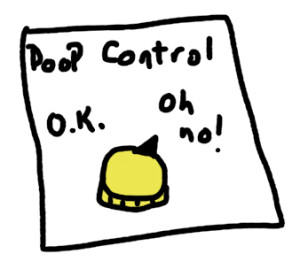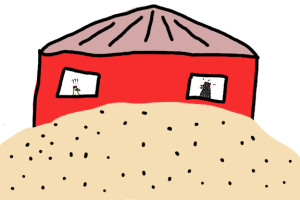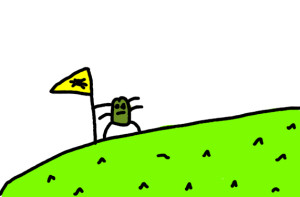Vent Gleet? Vent Gleet!
Friday, September 6th, 2013(Broadcast 9/6/2013)
Sometimes things just seem to happen at the right times. One of the chickens had been acting a little odd every so often, and I was keeping an eye on her to try to figure out if she was just being weird, or if something else was up. The problem was that she was one of the Mandrell Sisters, so I wasn’t really able to tell which chicken was acting weird, just that it was a Buff Orpington. Then I happened to notice that one of them had, for lack of a better term, a “racing stripe” down her butt, so at one point in recent memory, there had been some digestive upset. I didn’t see any evidence of that as an ongoing thing in the coop, but I was now paying extra close attention, and also had a way to distinguish this one from the other two. What brought it all together was a blog post by one of my former writing students. She has chickens, and writes about them, and mentioned that she had had a run-in with something called “vent gleet.” As I read the symptoms, I realized that one of my chickens might have this same issue.
Not too long ago, if you had said the words “vent gleet” to me, I might have figured it was a city in Holland, and pictured canals, lots of bikes, and people so liberal they make Massachusetts look like Texas. This image is now gone, thanks to the fact that vent gleet is also known as “messy butt disease,” among other things, and if you do any sort of research on it, you will see things that cannot be unseen. It’s a fungal infection of the “vent,” aka the “cloaca,” aka the chicken’s butt (which is also where the egg comes out for one stop shopping!). Diarrhea is a symptom, which is how the feathers in the butt area get so messy, but if you don’t treat it, it can spread internally and cause lowered egg production, or even death. Once I saw all the symptoms tied together, I knew this was probably what this chicken had going on. Luckily, that chicken that had been acting weird acted weird again right around that time vent gleet came on my radar. Nothing huge, just things like sitting in the shavings rather than on the roost, but when encouraged to go on the roost, she’d then just wander outside into the run in the dark. Maybe she thought it was actually morning, but it seemed wrong to me. I shined the light on her hinder, and lo and behold, there was the aforementioned racing stripe. I knew it was time to treat this chicken.
One of the main ways to cure this affliction is to put apple cider vinegar in the chickens’ water. I do this anyway, so I was a little miffed that she still managed to rock the gleet. But these things happen. I brought her into the quarantine pen, and began stronger treatments.
The big one people recommend is to give the chicken a bath. This may sound ridiculous, but you have to get the dirty feathers dealt with. An epsom salt soak is how many people do it, since this will also kill the fungus, but I didn’t think I had a large enough bucket or the patience to do this. I went the brute force route and snipped the dirty feathers off with scissors. I then gave her a dose of an epsom salt solution, which I had to administer a few drops at a time. I had the chicken wrapped in a towel as I hunched over her, trying to get her beak open to get the magic potion in. It took about a half an hour, but the humiliation I felt will last a lifetime. You can just leave this solution out for them to drink if there is no other water, but that seemed like an invitation for it to get dumped in the shavings. She eventually got her full dose, and then I put her in a dog crate with food, water, and some yogurt. The probiotics in the yogurt also help fight the fungus.
I initially put the waterer they used as chicks in there with her, but she wasted no time in spilling that everywhere. Since we’re trying to fight fungus, it seemed counterproductive to have a moist chicken. I took that waterer out, put in dry shavings, and attached a hamster water bottle to the crate. After a day or two, I noticed two things. 1. There was no diarrhea to be seen, and 2. she didn’t seem to have figured out how to use the water bottle. She had also been away from the rest of the flock for five days at this point, and I was worried about having to reintroduce her if she stayed out much longer. Most people seem to think they need to be quarantined for a week, but I felt that since she seemed to be on the up and up, maybe I could put her back in after five days, at least so she’d get some water. I put her back in the coop the next morning, and she fit right back in as if nothing was wrong.
The good news is that the weird smell in the coop has disappeared. There’s a sickly sweet smell that the fungal stool gives off, and I realized in retrospect I had noticed an odd aroma and just chalked it up to humidity. I’m not smelling it anymore, so that’s a victory. The bad news is that she still sometimes sits in the shavings and goes out in the run in the dark if I try to put her on the roost. So maybe it’s not the gleet, or maybe she needs more treatment. Whatever it is, she’s missing a big chunk of butt hair, so for now I can keep a better eye on her until I figure it out.
(There’s an update to my vent gleet treatment here. There’s an easier way!)
